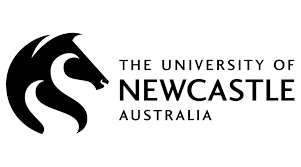University of Newcastle: New partnership addressing children’s trauma
Mothers and children escaping domestic and family violence are being supported by a new partnership between Jenny’s Place and the University of Newcastle’s School of Psychology.
The partnership, made possible by a philanthropic grant to Jenny’s Place, enables residents of Jenny’s Place crisis accommodation to access weekly psychology services within the shelter – where and when it is needed – at the newly created Sunshine Hut clinic.
Sunshine Hut is staffed by provisional psychologists and postgraduate students from the University of Newcastle, under the guidance of experienced clinical supervisor, Mrs Saskia Behan.
Mrs Behan said the service has been embraced by mothers in the shelter since it began operating in March.
“In their first appointment we work with mothers to explore their history and understand their needs. They are then supported with individual therapy, parent-child support, and referrals,” Mrs Behan said.
“To offer the best support we take a de-stigmatising, trauma-informed approach that really focusses on supporting a positive future for the women and children who need our help.”
The benefits of the program are twofold. It offers much-needed support to women and children who have experienced trauma, and a unique learning opportunity for psychology students.
“It gives students a very hands-on experience. We’ve established the Clinic from the ground up, so they are in the driver’s seat learning new skills,” Mrs Behan said.
The clinical supervisor role is funded by an anonymous donor, who is also funding preliminary research to further develop this innovative support program for children in crisis shelters.
Rebecca Fellowes, who is studying a Master’s in Clinical Psychology, is one of the four University of Newcastle students involved in the work integrated learning opportunity. She said the opportunity to build rapport with families has helped the program succeed.
“It’s nice when new mothers come in because they have spoken to other mums.
“They feel very safe and comfortable to share their stories,” Rebecca said.
Jenny’s Place caseworkers can initiate appointments for their clients but many of the women supported by Sunshine Hut join of their own volition after seeing the students working with children in the playground. While women only stay in the shelter for up to eight weeks, they’re able to continue to access the services for their children once they have moved on.
Executive Manager, Marcia Chapman, said that supporting the children in the shelter has been a priority for Jenny’s Place since it was established in 1977. A previous program lapsed in 2018.
“The impact of domestic and family violence on children is immense and can often affect them for the rest of their lives,” Ms Chapman said. “Children and young people don’t have to see the violence to be affected by it.
“The children in our care have left behind their homes, their toys, their clothes, their friends, their pets, their school and their fathers. Regardless of their age, they need support as they respond to the trauma they have experienced,” Ms Chapman said.
“We’re keen to reinstate children’s support programs at the crisis shelter as soon as possible.”
Under the guidance of the Associate Professor Linda Campbell from the University of Newcastle, Jenny’s Place and the University have developed a four-year plan to scale the program and support more children in crisis accommodation.
The first stage, funded by a philanthropic grant, is underway. It will deliver the 32-week student placement that has enabled the Sunshine Hut clinic, as well as early research, including a literature review and ethics application.
Stage 2, which will be informed by the results of the first student placement and the preliminary research, aims to create a novel, longer-term program to assist children in emergency accommodation. Proposed to be part of Mrs Behan’s doctoral study, Stage 2 includes the development of a staff training program, manual and educational materials for the program.
“We’re currently seeking funding for Stage 2. Achieving the outcomes from that will provide us with evidence and understanding. This will greatly enhance our ability to fund the program into the future,” Ms Chapman said.
“Stage 2 funding is likely to enable the Program to be disseminated across other service providers in our community and further afield.”

